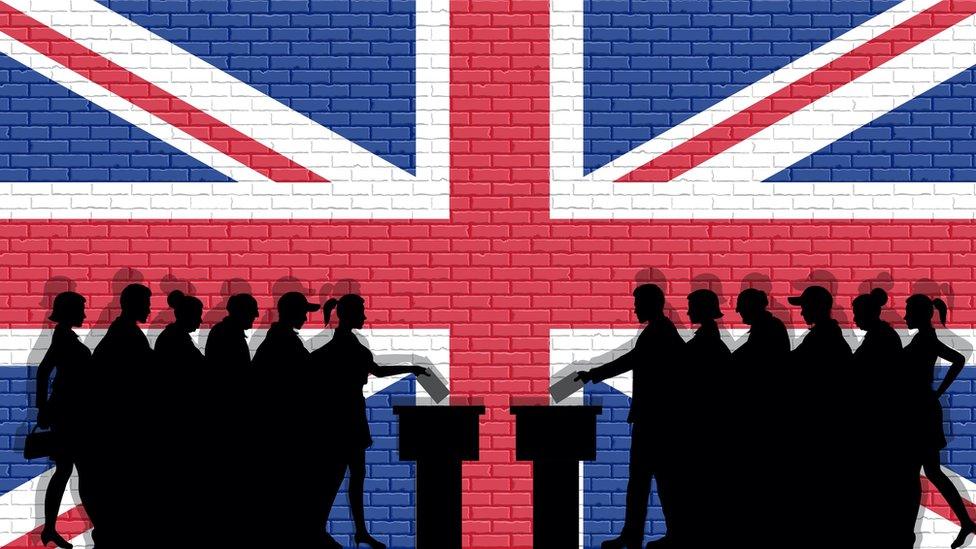General election 2019: Decisive moments in UK campaign
- Published
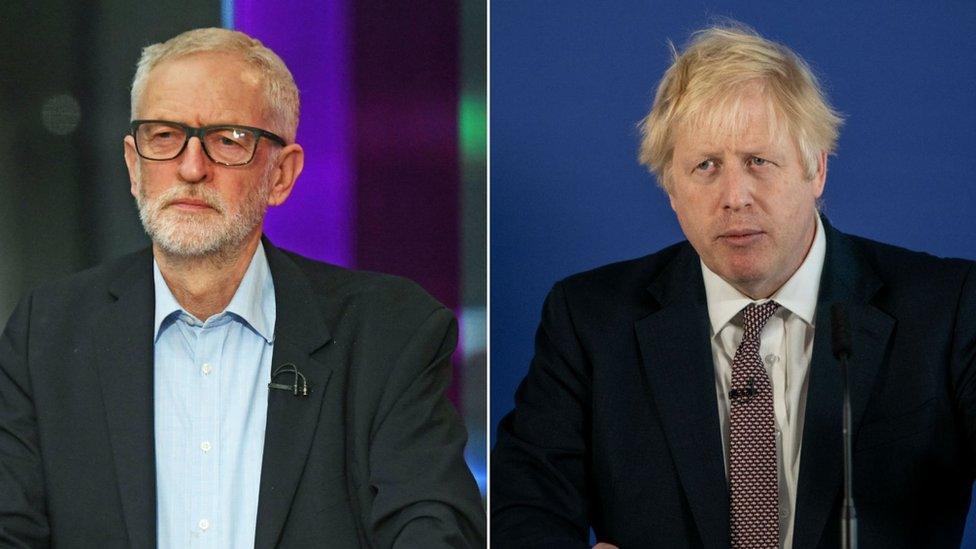
The Labour party of Jeremy Corbyn (L) is behind the Conservatives of Prime Minister Boris Johnson
Was this the week people will look back on as when it became clear Boris Johnson and the Conservatives were likely to win the general election? I say this because this election was always going to be decided by three big issues.
What would be less fractured, the 17.4 million Leave vote from the 2016 referendum on the European Union, or the 16.8 million Remain vote? So far the evidence suggests the former, with Conservatives scooping up large numbers of Leave voters while the Remain vote is far more scattered across all the opposition parties.
Opposition Labour leader Jeremy Corbyn's striking unpopularity
Labour's ability or inability to make this election less about Brexit and Mr Corbyn's leadership and more about austerity and the Conservatives' nine years in power.
So how does all the above fit in with what's been happening in the campaign these last few days?
Leave vs Remain
To take the Leave versus Remain vote first, the key moment was the launch of the Conservative Party's manifesto - what it's promising if it wins the election.
With its familiar title "Get Brexit Done", it was an unashamed pitch to Leave voters furious the UK hasn't left the EU yet, and undoubtedly to other voters just sick of the whole Brexit stalemate/mess/morass.
Crucially for the Conservatives, as the rest of their manifesto was largely a steady-as-she-goes approach in all other policy areas, "Get Brexit Done" was just about the only message that stood out.
One imagines that is exactly what the party's campaign managers were hoping for - as, no doubt, was the relatively limited journalistic and political scrutiny there has since been as to exactly what "Get Brexit Done" means, and the extent to which relations with the EU are in fact likely to dominate UK politics for the foreseeable future.
But if the launch of the Conservative Party was a unifying moment for Leave voters, the opposite has been true for the forces of Remain and/or a second EU referendum.
Despite the endorsement of several high-profile Conservatives, the biggest out-and-out anti-Brexit party nationally, the Liberal Democrats, have really been struggling.
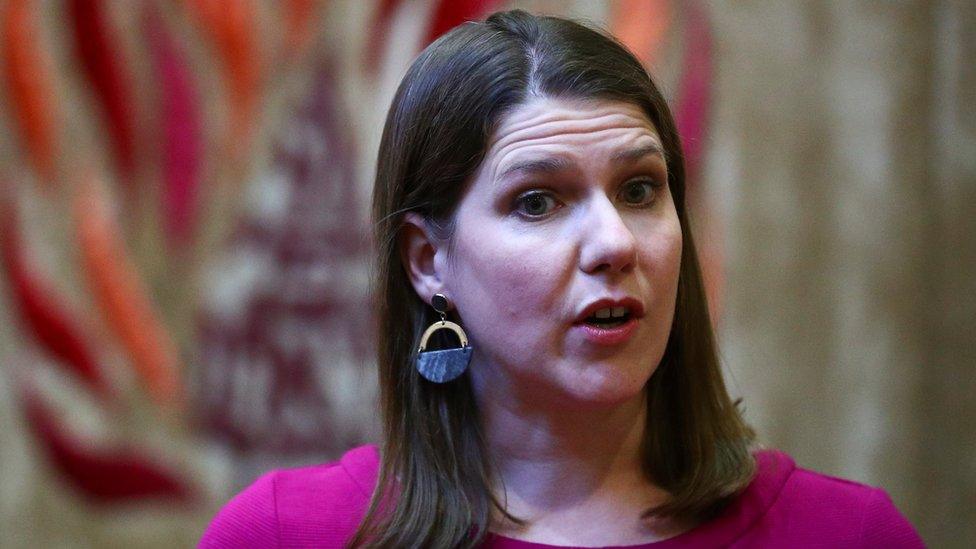
Jo Swinson's Liberal Democrats have been struggling to progress in the opinion polls
Opinion polling suggests the party and its leader, Jo Swinson, are failing to gain traction, with many party insiders now thinking it was perhaps a massive mistake to make their main policy to just stop Brexit rather than to hold a second referendum.
Why? Because it looks rather undemocratic.
More broadly it's becoming clear the Conservatives are benefiting from the failure or unwillingness of all the political parties who either oppose Brexit altogether - or at least Mr Johnson's vision of it - to form some broad electoral pact against him.
Indeed, that may come to be the big story of this election for historians wondering why Remain politicians were unable to block Brexit, given that most polls now show opinion has shifted somewhat against leaving the EU.
Jeremy Corbyn
This election is less about who is the most popular leader and party and rather more about who is the least unpopular.
Opinion polls consistently suggest Jeremy Corbyn is the most unpopular leader of the Opposition since the question was first asked by pollsters in the 1970s. So an attack on the Labour leader from the UK's Chief Rabbi, Ephraim Mirvis, accusing Mr Corbyn of allowing the poison of anti-Semitism to drip into the party was never going to help.
WATCH: Jeremy Corbyn is pressed over his handling of anti-Semitism within the Labour Party
Although it's true the Conservatives were also accused of racism this week - in their case Islamophobia - the allegations are seen, fairly or not, more as involving individual acts of crass behaviour rather than as being something somehow to do with the world view of their party or their leader.
It's austerity, stupid
Labour has also been struggling to make this election about the government's record rather than about Brexit or Mr Corbyn.
Polls do suggest the party has had some success in focusing voters' attention on the funding and quality of public services such as health and education. But just not enough.
The party's case has not been helped by Mr Corbyn's struggles to explain exactly how the government would fund its promised huge increase in the size of the state, without increasing taxes on ordinary people.
Watch: Boris Johnson refuses to commit to Andrew Neil interview
That emerged in the face of a hostile interviewer on the BBC, the well-known terror of politicians, Andrew Neil. It should be noted, in passing, that Mr Johnson has so far avoided the ordeal of being grilled by Mr Neil.
In conclusion
If, as the polls are suggesting, Mr Johnson is on his way to victory, it'll be thanks to a probably sometimes overlapping coalition of voters who either backed Leave in 2016 and/or think Mr Corbyn is dangerously leftwing.
Of course, it's worth remembering these are just polls, not real votes, and there are still two weeks to go. But as of now the Conservatives are surely the happiest of the main parties.
The Ghost of Brexit
One last thought: this was supposed to be the Brexit election.
In many ways, of course, it is in terms of which party can capitalise best on a deeply polarised country.
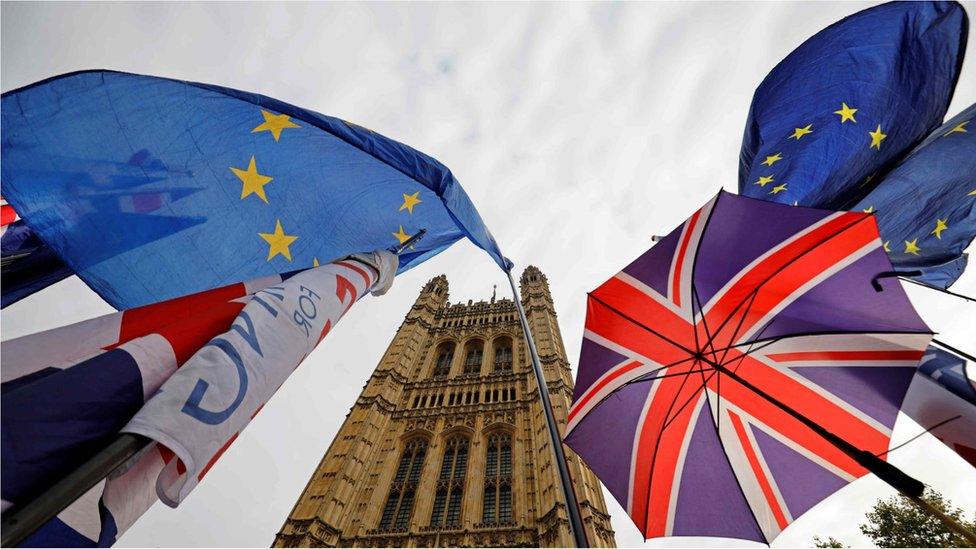
What the election hasn't really featured so far is a detailed discussion of either what Brexit will really look like or what would be the consequences of not going ahead with the UK leaving.
And that lack of debate may come back to haunt whoever ends up the winner.
Read more from Rob's election campaign coverage:
Week 1: Gloves are off as UK's pivotal election race begins
Week 2: UK politicians risk hecklers in rain-soaked campaign
- Published6 December 2019
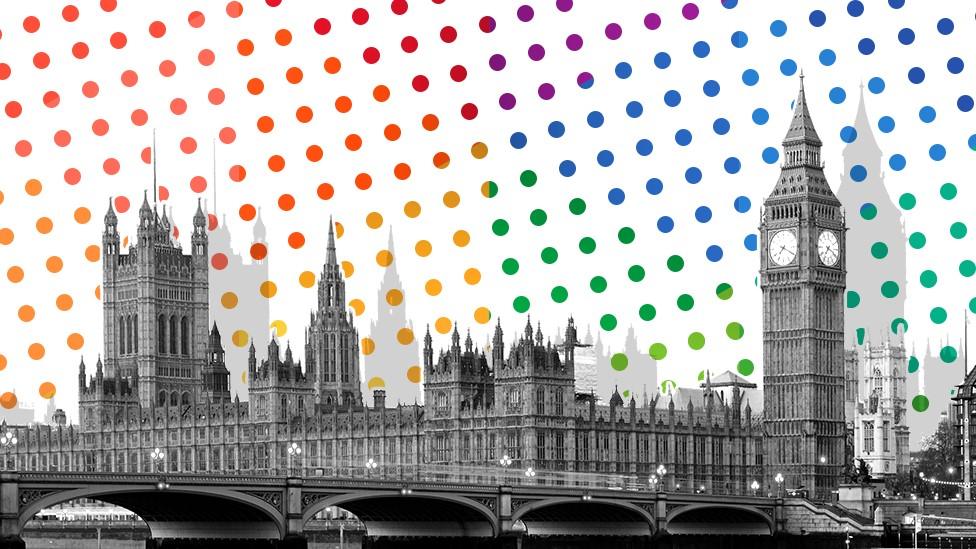
- Published29 November 2019
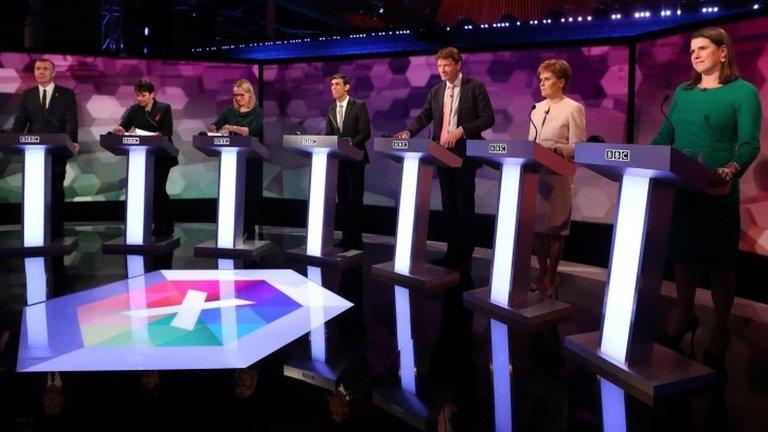
- Published28 November 2019
